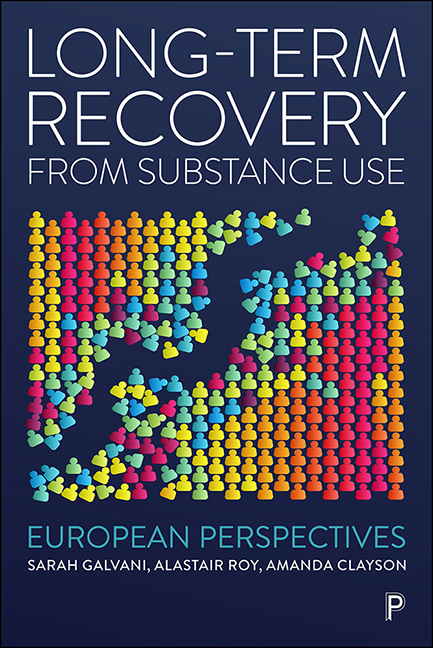11 - Transitions in long-term recovery: mapping adolescent development theory to better understand identity change in recovery
Published online by Cambridge University Press: 15 September 2022
Summary
Introduction
The importance of social identity in the process of recovery from substance use is increasingly supported by evidence, particularly from the UK and Australia. Social identity as an important element in recovery appears crucial in developing a recovery identity rather than an addict identity, particularly when strengthened by validating factors of social belonging and recovery-group membership (Orford, 2001; Best et al, 2014, 2018; Beckwith et al, 2019).
The definition of recovery in substance use is debated, as many interpretations align it with sobriety and abstinence (Groshkova et al, 2013), but to view recovery as a trajectory, as we accept it in this chapter, suggests multiple stages and transitions towards a self-defined state of recovery.
Important factors in support of recovery are elements brought together under the umbrella of ‘recovery capital’, those internal and external resources that aid a person in their recovery from substance use (Mawson et al, 2015). These may include personal resilience and motivation, problem-solving skills, education and a sense of purpose, and extra-personal assets such as supportive social and family relationships, socio-economic opportunities and supportive connections (Cloud and Granfield, 2008). It is clear that external recovery capital stems from theories of social capital, in which links with external social bonds give a sense of community (Putnam, 1995; 2001) and facilitate access to resources through social connections (Bourdieu, 1977). However, the internal sense of recovery capital has more resonance with identity capital and intra-personal resources. In this, we see parallels with the development of resilience and sense of self that stems from developmental theories.
In this chapter, we describe two studies which together illustrate the parallels and common theoretical origins of the development of recovery capital and developmental theory, and demonstrate how developmental theory helps explain and map transitions to long-term recovery through personal maturation and individualisation.
The care-leaver study
One of the studies included here explored the maturational impact of offering volunteering opportunities to young people transitioning out of care, using an agency-identity model to track identity development (Webb et al, 2017). Eighteen young people between 14 and 21 years of age, in care and leaving care and with a range of genders, ethnicities and disabilities, were interviewed during their experiences of volunteering projects.
Information
- Type
- Chapter
- Information
- Long-Term Recovery from Substance UseEuropean Perspectives, pp. 143 - 156Publisher: Bristol University PressPrint publication year: 2022
